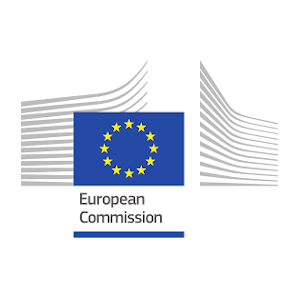Study on animal welfare labelling (2022)

Cerebrus Associates has recently assisted ICF to gather evidence to support potential initiatives concerning animal welfare labelling in the European Union. The study has involved collecting and analysing qualitative and quantitative data on consumers’ awareness of animal welfare standards and demand for further information. It has also involved gathering data on existing labelling schemes with animal welfare claims found in the EU and assessing their designs and impacts. The work was commissioned by the European Commission (Directorate General for Health and Food Safety, DG SANTE).
This study on animal welfare labelling for the European Commission (Directorate General for Health and Food Safety, DG SANTE) has gathered evidence to support potential initiatives concerning animal welfare labelling in the European Union. The study has involved collecting and analysing qualitative and quantitative data on consumers’ awareness of animal welfare standards and demand for further information. It has also involved gathering data on existing labelling schemes with animal welfare claims found in the EU and assessing their designs and impacts.
The study applied a mixed-method approach:
- a systematic mapping, extraction, and analysis of secondary sources, such as peer reviewed articles and grey literature, including EU policy documents, EU legislative documents, and other relevant documents such as audit reports and national action plans;
- a systematic mapping of 51 labelling schemes with animal welfare claims present in the EU Member States, the UK and Switzerland, including 17 labels with an organic dimension. This included the scheme’s country (where relevant) and scope, the type of label, history, governance, controls and impact on animal welfare and the wider market;
- an EU-wide consumers’ survey on understanding, expectations, needs, and preferences towards EU action on animal welfare labelling. The survey explored also willingness to pay for higher animal welfare products. The survey had a quota of 400 responses per Member State (300 for Cyprus, Luxembourg and Malta);
- two targeted surveys: one with industry organisations in EU and Member States, the other with adherents to a selection of existing labelling schemes;
- eight in-depth case studies of labelling schemes with animal welfare claims, across six Member States and three animal species.
The study findings show that, in the context of Farm to Fork Strategy, there will be EU value added for the Commission to consider options for animal welfare labelling to better transmit value through the food chain. There is a clear consumer demand that is currently not being met, and a clear need for raising awareness and simplifying the existing state of play of labelling schemes with animal welfare claims in the EU.
The project was led by Mar Maestre, Laura Campbell, Julien Etienne, Ellie Cook and Alex Matulina at ICF. The work was supported by Lotta Berg (Swedish University of Agricultural Sciences), Heleen van de Weerd (Cerebrus Associates), Antoni Dalmau (Institut de Recerca I Tecnologia Agroalimentàries), Francois Cadudal and Aymeric Le Lay (ITAVI), Jurgen Hijink (independent expert), Astrid Stampe Lovelady (SEGES) and our colleagues Raffale Zanoli, Emilia Cubero and Danilo Gamberi (Università Politecnica delle Marche).
